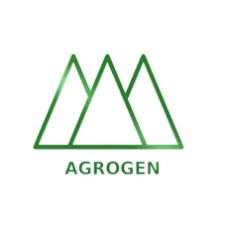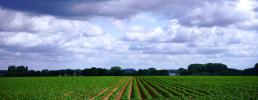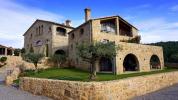
Erasmus+ Project: AGROGEN: Mountain agriculture as an opportunity for young people
- Type Project
- Status Filled
- Execution 2021 -2022
- Assigned Budget 45.592,4 €
- Scope Europeo
- Autonomous community Cantabria
- Main source of financing Erasmus +
Thanks to previous projects carried out by the Campoo de Yuso Town Council, we understand the potential of traditional mountain agriculture in this area. Therefore, we have historical and current evidence of its technical viability. Research conducted by various institutions of the Cantabrian Government also confirms this. However, we are losing this legacy, both at the technical level (ways and customs) and in terms of local seed varieties.
Added to this is the fact that young people in mountain areas face two employment problems: if they have training other than that of the productive sector, they are forced to leave. If they want to work in the productive sector, they encounter a saturated market and customs that do not adapt to the demands of today's market or to their environmental, labor, and human sensitivities.
The activities are grouped into four main areas:
- Compilation of mountain agriculture experiences from the five participating countries to identify commonalities and differences, and generate a searchable database. This will allow partners with a more agricultural focus to train partners with a more youth-focused approach.
- Creation of a manual of non-formal education techniques and workshops. This manual will enable partners with experience working with youth to train more technical partners.
- Outreach. The project's website and social media platforms aim to publicize the project's idea, actions, and formal and informal partners. Media coverage (radio, print, and television) has also been used throughout the project to publicize both the idea and the steps taken.
- Learning days. The project concluded with a 12-day meeting with young people from all participating countries, where they were able to exchange information and visit numerous projects that fulfill the project's central idea firsthand. Contact was also made with organizations and other Erasmus+ projects to emphasize the need to collaborate and share resources.
We cannot allow it to remain a scientific or historical exercise, which has value in itself but does not provide solutions to depopulation and job insecurity in mountain areas. We must overcome the idea that "promoting" or "disseminating" is doing something. It is urgent that we assume our role and become facilitators of action.
Therefore, it's a question of going a step further and testing whether it's possible to propose a work-life balance plan for young people based on this activity and in this type of area. In this way, we can propose a way to secure the population and attract them from outside with a sustainable activity that works. Knowing that similar experiences are being carried out in other parts of the European Union, the Erasmus+ project framework seemed perfect for verifying this issue and making this idea visible.
A manual of non-formal education techniques has been created. A document has been generated with experiences demonstrating the feasibility of the idea. It has been confirmed that young people are willing to undertake this type of project. The reasons for their interest are diverse. First, it coincides with the environmental principles they all share. For some, staying in mountainous areas is their preference, since that's where they come from, and for others, it's a life goal. Finally, they understand that the current way of managing agriculture is unsustainable and does not represent a job opportunity for them.
The outbreak of war in Ukraine has halted agricultural production for two reasons: Ukraine is the most important country in this sector in Europe, and, as occurs in all armed conflicts, this has led to a significant increase in fuel prices. At the end of the conflict, the European productive sector will have to reorganize, which means mountain agriculture must be analyzed from a new perspective that we cannot yet predict.
- Name of coordinator/entity: CAMPOO DE YUSO CITY COUNCIL
- Postal address: Calle La Costa 1, 39292 La Costa
- Telephone: 942778310
- Ayuntamiento De Campoo De Yuso
- Centro de Educación Innovadora
- VIVERO REGIONAL UMBRAFLOR
- INSTITUTO DE VALORES SOCIALES Y SYNOXIS
- CAMINATA DE LA AMISTAD JUNTOS







